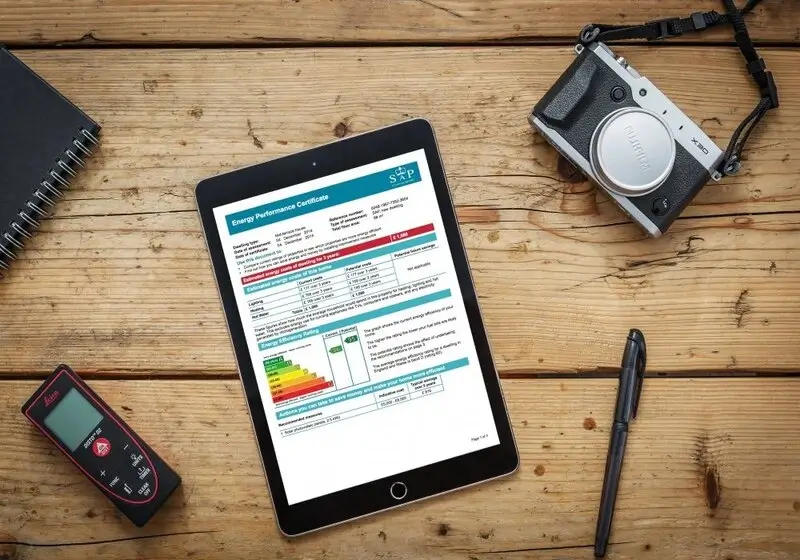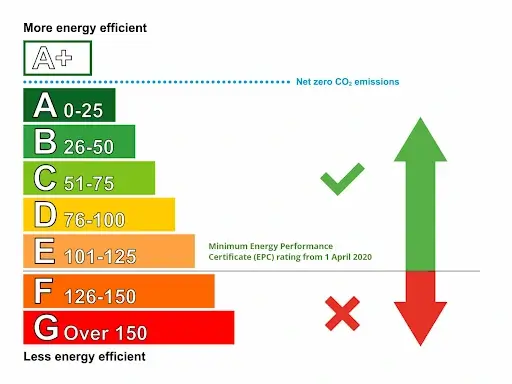Are EPC Rules Changing in 2025?
As the UK pushes for improved energy efficiency in buildings, landlords must stay up to date with the latest EPC rules. From minimum rating requirements to potential future changes, this guide explains everything landlords should know about EPC legislation as of 2025.

Current EPC Legal Requirements
Under the Minimum Energy Efficiency Standards (MEES), rental properties in England and Wales must have an EPC rating of at least E to be legally let:
- Residential properties: Since 1 April 2020, all rented homes must meet this minimum E rating.
- Commercial properties: Since 1 April 2023, all existing leases (not just new ones) must meet EPC E or above.
If your property is rated F or G, you cannot legally rent it out unless you improve your EPC rating. See full MEES landlord guidance on GOV.UK.
What’s Changing After 2025?
Although the originally proposed requirement for all new tenancies to be EPC C by 2025 has been delayed, the government is still moving toward tightening standards:
- Current confirmed minimum: Still EPC E.
- Expected future requirement: EPC C by 2028 for new tenancies, and possibly all lets by 2030.
- Commercial buildings: May need to reach EPC C by 2027 and B by 2030
Nothing new is being enforced in 2025 itself, but landlords should prepare now to avoid being caught out.
Do These Rules Apply to You?
If you rent out residential or commercial property in England or Wales, then yes — these rules apply to you.
You are legally required to hold a valid EPC, ensure your property meets the minimum rating (E or above), and provide tenants with a copy of the EPC at the start of any tenancy.
Are There Any Exemptions?
Some properties may be exempt — get the full list and rules in our post on EPC exemptions:
- Places of worship
- Temporary buildings used under 2 years
- Standalone buildings under 50m²
- Industrial or low-energy-use buildings
- Certain listed buildings
Landlords can also register exemptions for reasons like high upgrade costs or denied third-party consent — but these must be documented and registered officially.
Penalties for Non-Compliance
Fines can be significant:
- Up to £5,000 per residential property
- Up to £150,000 for commercial breaches, depending on severity and length
Enforcement is handled by local authorities. Failing to comply also affects your ability to evict tenants via Section 21 in England.
What Should Landlords Do Now?
Start by checking your current EPC rating — if it’s F or G, action is required immediately. Plan upgrades that could move your property closer to a C rating, such as insulation or heating system improvements. Keep detailed records of all changes and monitor when your EPC expires. Finally, stay informed on potential regulation updates from the government.
Final Thoughts
As of 2025, landlords must ensure all let properties have an EPC rating of at least E. While proposed changes toward EPC C have been delayed, they are still likely. Read about upcoming changes in RdSAP 10 that will influence how future EPCs are calculated.
Landlords who act early to improve energy efficiency will avoid legal trouble and future-proof their investments.
Need an EPC? Our network of qualified, independent energy assessors handle both domestic and commercial EPCs. Visit the Areas We Cover page to find your local assessor.
